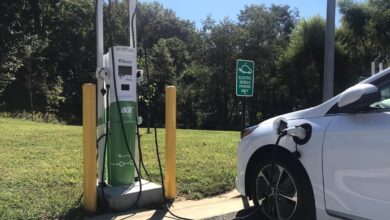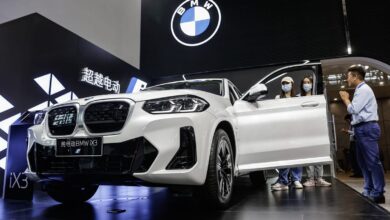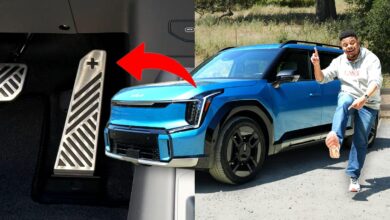Chinese electric car brands zapped by price surge as EU cranks tariffs • The Register

The European Union is set to raise tariffs on Chinese-made electric vehicles, saying they benefit from “unfair subsidization” from the Chinese government.
The European Commission (EC) says that while its investigation into Chinese EV brands since October isn’t over, it has determined that there is “a threat of economic injury to EU BEV [battery electric vehicle] producers” in Europe, which justifies the introduction of new tariffs, which currently stand at 10 percent for all EVs. This policy follows that of the US, which levied tariffs on Chinese EVs last month.
Three brands in particular were hit with tariff bumps: BYD at 17.4 percent, Geely at 20 percent flat, and SAIC with a hefty 38.1 percent. A general tariff increase against other brands will be levied depending on whether they have cooperated with the EU’s investigation: 21 percent for those that did, and 38.1 percent for those that didn’t. These numbers are much lower than the 100 percent tariff that the US put into place, with the maximum being 48.1 percent for non-cooperative firms.
The numbers for BYD and Geely suggest that they were cooperative with the EU, while SAIC wasn’t.
Additionally, the EC mentions Tesla will also be subject to the tariffs since it produces some of its EVs in China. However, the announcement notes that the Musk-run car brand requested an individually applied tariff like BYD and Geely, presumably to get access to lower tariffs. Other brands are also allowed to request their own unique tariffs after the investigation has concluded.
The tariffs will kick in on July 4, exactly nine months after the investigation was initiated. However, there’s still time for China and its EV manufacturers to avert the import duties, which are only provisional at the moment. What the EC terms “definitive measures” are due within four months of the provisional tariffs going into effect, or November 4 at the latest.
“The Commission has reached out to Chinese authorities to discuss these findings and explore possible ways to resolve the issues identified in a WTO-compatible manner,” the announcement says. “Should discussions with Chinese authorities not lead to an effective solution, these provisional countervailing duties would be introduced from 4 July by a guarantee.”
The tariffs have apparently not locked out all Chinese EVs from the EU, though, as the China Passenger Car Association (CPAC) reportedly said the tariffs were in line with expectations and the impact would be minimal. However, the same might not be true for SAIC and other brands deemed to have been uncooperative with the EU since 48.1 percent is a fairly hefty tax to pay. ®



